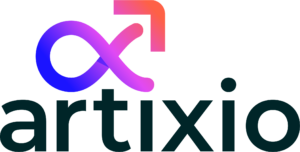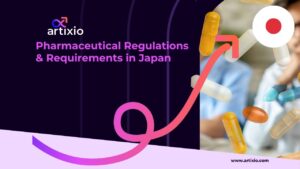Artificial Intelligence (AI) has been making significant strides across various sectors, and the pharma industry is no exception. One area within this sector where AI can bring about a substantial transformation is regulatory affairs. Regulatory affairs in the pharma industry involve ensuring compliance with all the applicable regulations and laws pertaining to drug development and marketing. This article aims to explore how AI can transform global pharma regulatory affairs, the challenges the industry faces today, and how AI can help overcome those challenges.
Current Landscape of Pharma Regulatory Affairs
Regulatory affairs in the pharma industry are complex and multifaceted. They involve ensuring that pharmaceutical companies comply with all the regulations and laws applicable to their operations. This includes everything from drug development and clinical trials to marketing and post-market surveillance.
Large pharmaceutical companies often have dedicated regulatory affairs departments, but these can be resource-intensive and costly to maintain. Small biotech companies, on the other hand, may lack the resources and expertise to effectively manage regulatory affairs, which can lead to delays in drug development and market approval.
Moreover, regulatory requirements can vary significantly from one country to another, adding an additional layer of complexity. Companies must stay abreast of the latest regulatory developments in all the markets where they operate, which can be a daunting task.
Role of Artificial Intelligence in Transforming Pharma Regulatory Affairs
Artificial intelligence has the potential to revolutionize the way regulatory affairs are managed in the pharma industry. Here’s how:
Streamlining Data Management
Regulatory affairs involve dealing with vast amounts of data. AI can help streamline data management by automating the process of data collection, organization, and analysis. Machine learning algorithms can sift through large datasets to identify patterns and trends, making it easier for regulatory professionals to make informed decisions.
Enhancing Compliance
AI can also play a crucial role in enhancing compliance. AI-powered systems can be programmed to stay updated with the latest regulatory changes and guidelines. These systems can then automatically assess whether the company’s practices are in line with these regulations, thereby reducing the risk of non-compliance.
Improving Efficiency
The use of AI can significantly improve efficiency in regulatory affairs. Tasks that would take humans several hours to complete, such as document review or data entry, can be done in a fraction of the time with AI. This not only speeds up the regulatory process but also frees up the professionals to focus on more strategic tasks.
Facilitating Global Collaboration
AI can facilitate global collaboration in regulatory affairs. AI-powered translation tools can eliminate language barriers, making it easier for regulatory professionals across different countries to collaborate. Moreover, AI can help harmonize regulatory practices across different regions by providing insights into the regulatory landscape of various markets.
Challenges in Implementing AI in Regulatory Affairs
While the potential benefits of AI in regulatory affairs are significant, there are also several challenges that need to be addressed:
Data Privacy and Security
Regulatory affairs deal with sensitive data. Ensuring the privacy and security of this data when using AI systems is a significant challenge. Companies must implement robust data security measures and comply with data protection regulations.
Quality of Data
AI systems are only as good as the data they are trained on. Inaccurate or incomplete data can lead to incorrect predictions or analyses. Companies must ensure that they have high-quality, reliable data to train their AI systems.
Regulatory Approval
AI systems themselves need to be approved by regulatory bodies. This can be a lengthy and complex process, and there is currently a lack of clear guidelines on how AI systems should be validated and approved.
Lack of Standardization
There is a lack of standardization in how AI is used in regulatory affairs. This can make it difficult to compare and validate results from different AI systems.
Change Management
Implementing AI in regulatory affairs requires a shift in how work is done. This can be met with resistance from employees who are used to traditional methods.
Technical Expertise
There is a need for technical expertise to implement and manage AI systems. This expertise may not be readily available in all pharmaceutical companies.
Ethical Considerations
There are also ethical considerations when using AI, such as ensuring fairness and transparency in AI decision-making processes.
Conclusion
In conclusion, Artificial Intelligence has the potential to revolutionize regulatory affairs in the pharma industry. By streamlining data management, enhancing compliance, improving efficiency, and facilitating global collaboration, AI can help pharmaceutical companies navigate the complex regulatory landscape more effectively and efficiently. As the technology continues to evolve, its impact on regulatory affairs is likely to become even more significant.
However, the successful implementation of AI in regulatory affairs will require overcoming several challenges, including data privacy and security, data quality, regulatory approval, lack of standardization, change management, technical expertise, and ethical considerations. With the right strategies and resources, these challenges can be addressed, paving the way for a new era of AI-driven regulatory affairs in the pharmaceutical industry.





